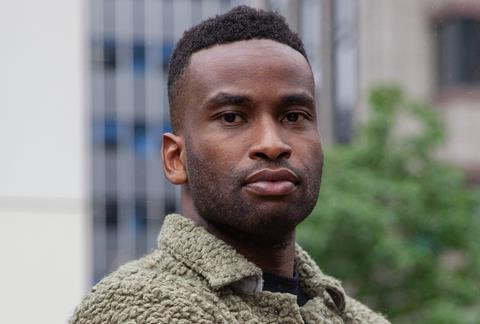We should all wish Muyiwa Oki well, but he faces an uphill struggle, writes Ben Flatman

Muyiwa Oki ran a grassroots campaign, seeking to speak up for the mass of ordinary salaried architects and crucially, for the next generation coming up through the education system. He vocalised lots of the key concerns that I, and many other members of the profession have been wanting to hear from a RIBA presidential candidate for years.
His victory should therefore be welcomed, not just because he is the first black RIBA president, talking about things that matter, but because he’s demonstrated that there are potential leaders out there, beyond the narrow pool of practice principals. It’s healthy that for once the president of the RIBA will be representing that sizeable chunk of the profession (i.e. the majority) who aren’t on six figure salaries, with the requisite second home. Here is a future president that will have a real opportunity to remake architecture’s image in the media and amongst the wider population.
But no one should get carried away. As I’ve written previously, Oki may find that RIBA is not the perfect vehicle for his reform agenda. The institute’s purpose is actually rather vague. On paper its mission is just “the general advancement of Architecture”. No mention of standing up for workers’ rights or addressing low pay there.
Oki though would presumably argue (fairly) that such a broad mission is open to interpretation. Surely the “advancement of Architecture” is only possible through a properly skilled and resourced workforce. There are glaring gaps in British architectural education that have left the profession deskilled and the public at risk. No wonder fees and wages have been under pressure for such a long time – we haven’t thought strategically about how to equip the next generation to lead. If Oki can even begin to shift the needle in the right direction on education, he will leave a worthwhile legacy.
We can only wish Oki well – his ambition is clear and he will need all the support he can get
It’s highly likely that Oki will run into opposition, or at the very least foot-dragging from a disgruntled establishment who have traditionally been resistant to change. He’d therefore be wise to try and work with the grain of RIBA as far as possible. If he wants to shift the organisation’s priorities he’ll need to go on a charm offensive with the old timers who’ve been used to having things their own way. Without at least some of their support he is likely to very quickly find himself a lame-duck president. And with only two years to implement change, he needs to hit the ground running.
Simon Allford’s initial response to Oki’s win is encouraging and suggests that at least some of those currently in power at Portland Place are willing to work collaboratively with the soon to be president-elect. We must hope that Allford (and others) will use their influence to ensure oppositionists don’t undermine Oki and his agenda. Those with a genuine commitment to the RIBA will realise that the profession’s long-term interests are best served by providing wise counsel and support to Oki, not seeking to trip him up.
But the need to work collaboratively cuts both ways. The dismal voter turnout of 12% means that’s Oki’s mandate for reform is legitimate but fragile. He must not forget the large number of sole practitioners and their commercial concerns. And RIBA cannot even begin to address issues around low pay without looking at fees and undercutting. To be effective, he will need to make sure he’s across issues like the professional indemnity insurance crisis, as much as student wellbeing.
Could it be that like so many radicals before him, the realities of office will have a chilling effect on his reforming impulses? Crushing inflationary pressures and a disturbingly unstable global environment do not bode well for those hoping for quick answers to long intractable problems in the architectural profession. We can only wish Oki well – his ambition is clear and he will need all the support he can get.
















5 Readers' comments